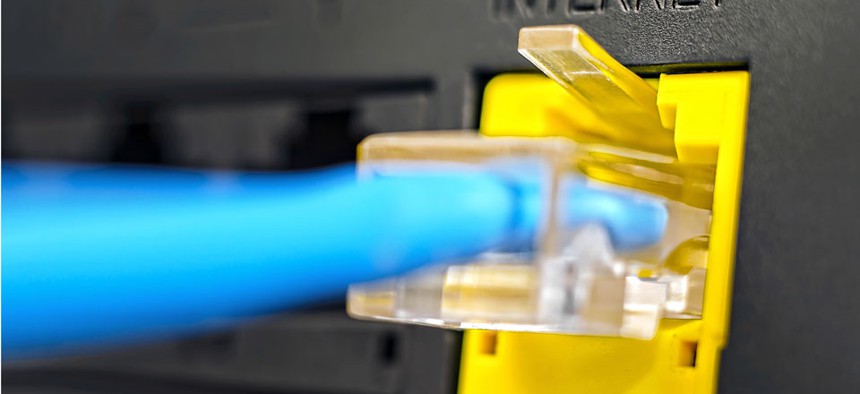The FCC Plans to Increase Your Phone Bill to Build Better Internet in Schools

Denis Rozhnovsky/Shutterstock.com
Federal regulators want to spend an extra $1.5 billion every year to boost Internet speeds. But consumers will have to pay for it.
The head of the Federal Communications Commission unveiled a plan Monday aimed at delivering high-speed Internet to classrooms and libraries around the country.
To pay for the $1.5 billion proposal, the agency is planning a dramatic increase in government fees on all monthly phone bills. Consumers around the country will have to pay as much as 16 cents more per month, according to the FCC.
The increase is necessary, FCC Chairman Tom Wheeler said, to ensure that students are able to access the important online tools and resources they need to prepare for the jobs of the future. About 63 percent of public schools—serving 40 million students—don't have sufficient Internet connections, according to the agency.
"The same digital revolution that gave us Netflix and Youtube also opened new worlds of educational opportunities for teachers, students, and librarians," Wheeler said. "But, unfortunately, while the connected home is commonplace, the connected classroom and library is not."
His plan would be a major expansion of E-Rate, the FCC's education-technology program created by Congress in 1996. The program is just one piece of the Universal Service Fund, which also subsidizes phone and Internet service for poor and rural consumers. All of the Universal Service Fund programs draw their money from fees on monthly phone bills.
Sen. Edward Markey, a Massachusetts Democrat who helped create the E-Rate program when he was in the House, applauded Wheeler for making a "huge, historic decision" to expand the program. The announcement also won praise from teacher and library advocacy groups. The National Education Association said the proposal "will go a long way to help level the digital playing field for our country's students," and the American Library Association said the additional funding will "help ensure that libraries can maintain the broadband upgrades we know the vast majority of our libraries are anxious to make."
Last year, President Obama announced an initiative to ensure that virtually all U.S. students have access to high-speed broadband by 2017. In July, the FCC took the first step toward achieving the president's goal by revamping its E-Rate program. The agency slashed funding for old technologies such as pagers and telephones, while funneling money towards Wi-Fi networks.
But at the time, the FCC dodged the controversial question of whether to increase the overall size of the E-Rate program. Government fees on phone bills have grown over the years, and Republicans consider them a painful tax. Wheeler's new plan would increase the annual funding cap on E-Rate from the current $2.4 billion to $3.9 billion.
On a conference call with reporters Monday, Wheeler downplayed the size of the fee hike. He explained that it would only amount to about $1.90 per year for each consumer, less than a cup of coffee or a medium soda. He also argued that the funding cap has prevented the program from keeping up with inflation over the years.
But the proposal is already drawing fire from Republicans. Ajit Pai, one of the two Republicans on the five-member FCC, said he plans to oppose the "17.2 percent tax increase" and suggested the chairman purposefully waited until after the election to move ahead with the proposal.
"Instead of imposing a greater burden on families struggling to make ends meet in this lackluster economy, the commission should pursue fiscally responsible reforms," Pai said.
Wheeler plans to share his proposal with the other FCC commissioners this week, with a vote set for December 11. The agency will need to review public comments before finalizing the increase.
(Image via Denis Rozhnovsky/Shutterstock.com)
NEXT STORY: Why We Need an ‘M-Government’ Movement






